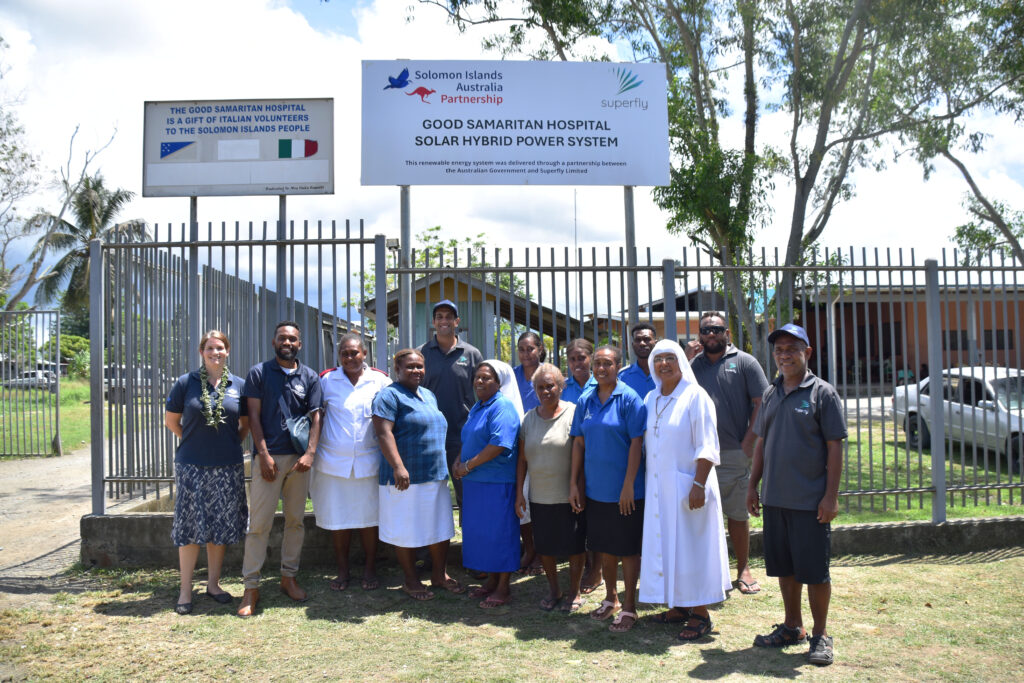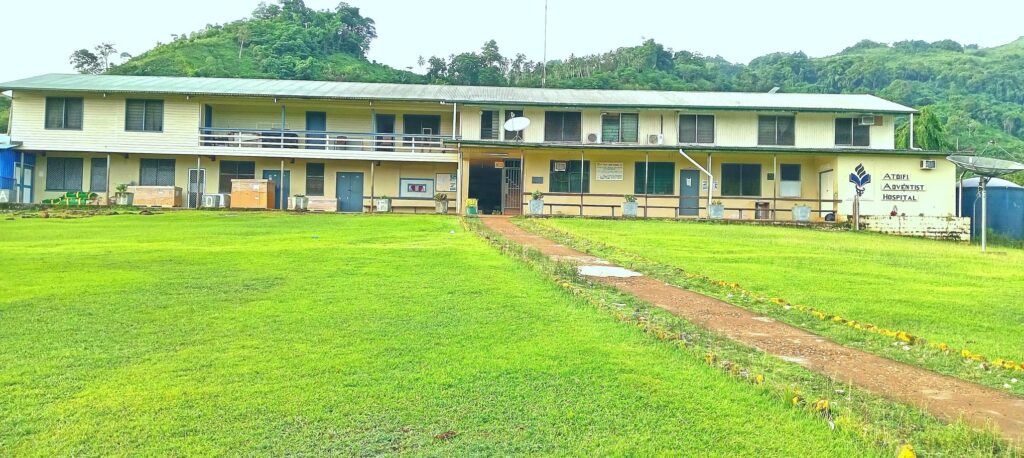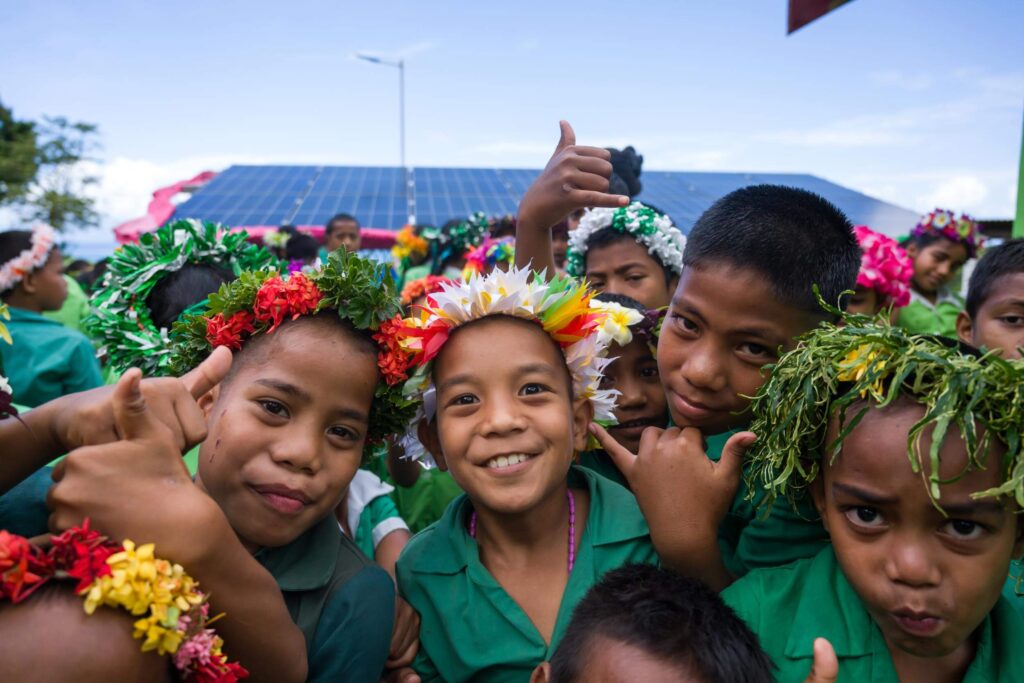It was late afternoon when Mary* arrived at the Yonanen Dispensary, a local health clinic on Vanuatu’s remote Tanna Island, heavily pregnant with her first child. The dispensary had been without lighting for over a decade. Night was falling, and like many women before her, she faced the prospect of giving birth by torchlight.
Just a week earlier, Respond Global’s HELPR-1 vessel had repaired and refurbished the existing solar power system at the clinic. Thanks to clean, 24/7 energy, the nurse was able to support Mary deliver and her baby boy safely and with dignity, during a time when they were both at their most vulnerable.
This is one of many stories the HELPR-1 team encounter on their life-changing mission to install 20 new solar systems and upgrade another 20 health facilities across Vanuatu. With support from the Vanuatu National Green Energy Fund (NGEF) and REnew Pacific, the team is also supplying medical equipment, repairing schools and clinics, training community members, and safely removing e-waste. Now more than halfway through, the project is on course to deliver reliable power to health centres that tens of thousands of local people depend on in some of Vanuatu’s most remote communities. Find out more.
As we hit the halfway mark in our countdown to COP30, we are focusing on a matter close to us all: the right to safe, reliable healthcare, powered by clean energy. Supported by the Australian Government through REnew Pacific and earlier pilots under the Business Partnerships Platform, local partners are lighting up health centres with clean, renewable energy across the region.
In Papua New Guinea, Caritas Australia has been working with Catholic Church Health Services, TAG Energy, Bechtel.org and the Australian Government to bring solar power to Lavongai and Mapua health facilities in New Ireland Province, improving care for the 12,000 people they serve. Find out more.
In Timor-Leste’s Cova-Lima Province, the MEA Power Up partnership with Master Electricians Australia and the Australian Government has improved services at clinics in Gala and Holpilat. With new solar systems, batteries and water pumps, these facilities now provide safer conditions for patients and health workers, while work continues to extend upgrades to other sites. Find out more.
In Solomon Islands, more than 43,000 people depend on the Good Samaritan Hospital (pictured) in Tetere, Guadalcanal, including 21,500 women who rely on it for maternity and child health care. Through a partnership with Superfly, completed late last year, the hospital now meets 97.3% of its energy needs with solar. This reliable, round-the-clock power has enabled safer night-time care and generated savings from 19,000 litres of avoided diesel use, reinvested into new facilities including expanded foot care services and a soon-to-open eye clinic. Find out more.
Further east in Malaita Province, Superfly is also leading upgrades at Atoifi Adventist Hospital through REnew Pacific. The hospital serves more than 80,000 people but has long struggled with blackouts that interrupted emergency care, maternity services and vaccine refrigeration. A new solar hybrid system will soon provide 24/7 reliable electricity, transforming the hospital’s ability to deliver essential care. “With 24-hour solar power, we can deliver safer surgeries, consistent vaccines and uninterrupted maternity care. This project is a life-saving investment for the people we serve,” said Lester Asugeni, Community Representative on the Atoifi Hospital Board. Find out more.
Every solar installation is a promise of safer care: a baby delivered under steady light, vaccines preserved, health workers able to use essential equipment without fear of power cuts, and so much more. Across the Pacific and Timor-Leste, these projects are ensuring that reliable energy means reliable healthcare, so that community members – no matter where they live – can receive the care they need at life’s most critical moments.
These transformative healthcare projects are made possible through the Pacific Climate Infrastructure Financing Partnership (PCIFP), a $350 million initiative delivered by the Australian Government’s Australian Infrastructure Financing Facility for the Pacific (AIFFP) and implemented by Palladium.
Follow along each week as we share a new story on the road to Belém.



